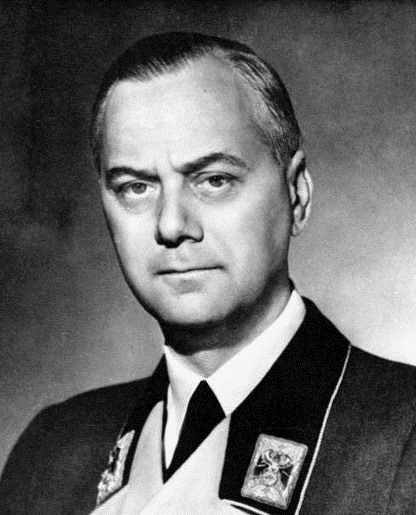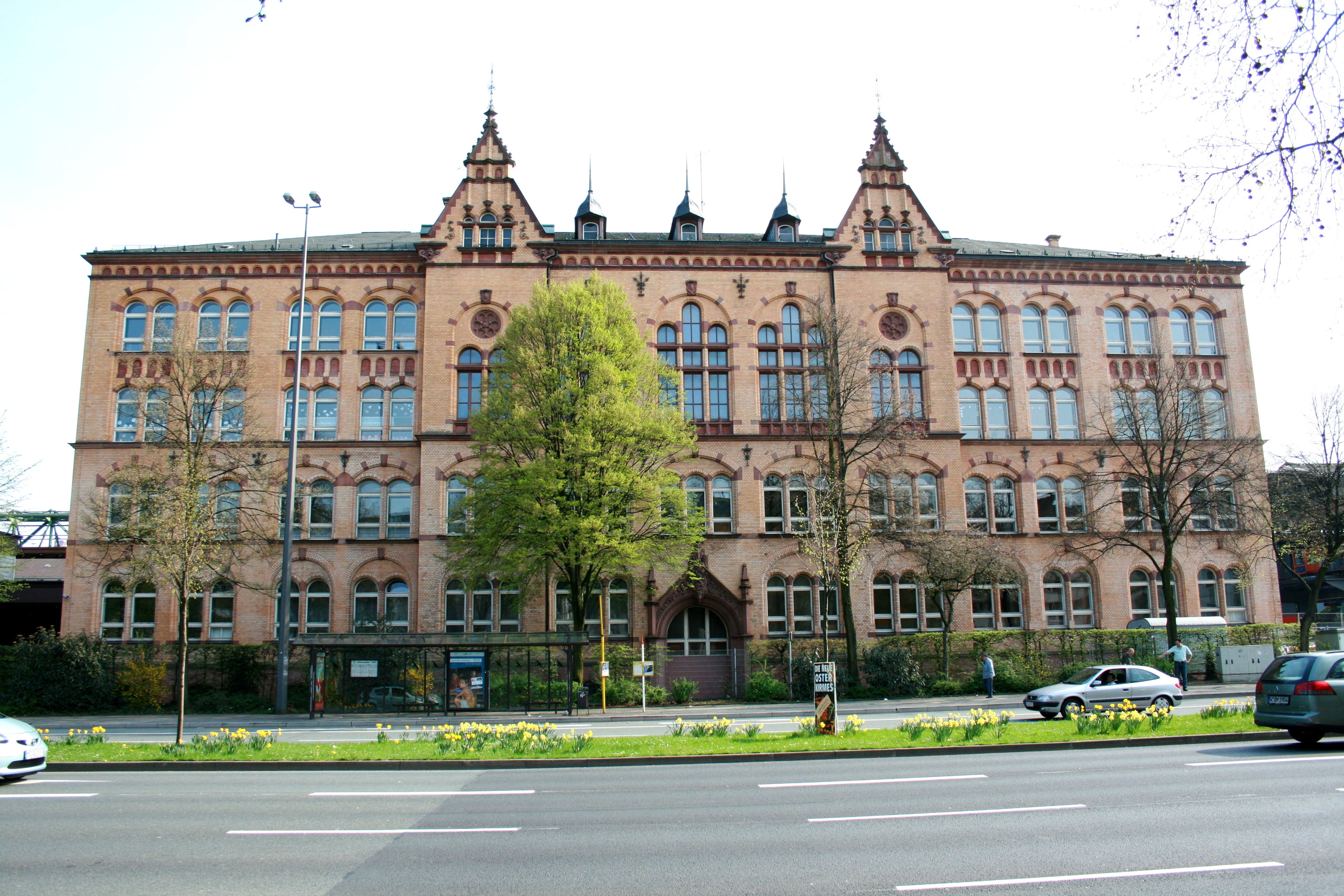|
Friedrich Wambsganss
Friedrich Wambsganss, also known as "Fritz" Wambsganss (25 June 1886 – 12 January 1979) was a German teacher, Nazi Party official, ''Sturmabteilung'' (SA) officer and Protestant synod president. Early life Wambsganss was born in Rehau in the Rhenish Palatinate, the son of a customs officer. He attended ''volksschule'' and Latin school in Grünstadt. He then went to the teacher training institute (''lehrerbildungsanstalt'') in Kaiserslautern from 1899 to 1904 and in 1908 became an elementary school assistant teacher. He then entered military service as a one-year volunteer with the 23rd Royal Bavarian Infantry Regiment. From 1909 to 1912 he was employed as a ''volksschule'' teacher in Sitters and Münsterappel. When the First World War broke out, Wambsganss was called up for military service with the 8th Royal Bavarian Reserve Infantry Regiment from 1914 to 1918. He entered service as a ''Leutnant'' and held positions as a platoon leader, a mess officer, Deputy Battalion Ad ... [...More Info...] [...Related Items...] OR: [Wikipedia] [Google] [Baidu] |
Gauleiter
A ''Gauleiter'' () was a regional leader of the Nazi Party (NSDAP) who served as the head of a ''Administrative divisions of Nazi Germany, Gau'' or ''Reichsgau''. ''Gauleiter'' was the third-highest Ranks and insignia of the Nazi Party, rank in the Nazi political leadership, subordinate only to ''Reichsleiter'' and to the ''Führer'' himself. The position was effectively abolished with the fall of the Nazi regime on 8 May 1945. History and development Origin and early years The first use of the term ''Gauleiter'' by the Nazi Party was in 1925 around the time Adolf Hitler re-founded the Party on 27 February, after the lifting of the ban that had been imposed on it in the aftermath of the Beer Hall Putsch of 9 November 1923. The word can be singular or plural in German usage, depending on its context, and derives from the German language, German words ''Gau (territory), Gau'' and ''leiter'' (''leader''). The word ''Gau'' is an old term for a region of the German ''Reich'' (Emp ... [...More Info...] [...Related Items...] OR: [Wikipedia] [Google] [Baidu] |
Synod
A synod () is a council of a Christian denomination, usually convened to decide an issue of doctrine, administration or application. The word ''wikt:synod, synod'' comes from the meaning "assembly" or "meeting" and is analogous with the Latin word meaning "council". Originally, synods were meetings of bishops, and the word is still used in that sense in Roman Catholic Church, Catholicism, Oriental Orthodoxy and Eastern Orthodoxy. In modern usage, the word often refers to the governing body of a particular church, whether its members are meeting or not. It is also sometimes used to refer to a church that is governed by a synod. Sometimes the phrase "general synod" or "general council" refers to an ecumenical council. The word ''synod'' also refers to the standing council of high-ranking bishops governing some of the autocephaly, autocephalous Eastern Orthodox Church, Eastern Orthodox churches. Similarly, the day-to-day governance of patriarchal and major archbishop, major arch ... [...More Info...] [...Related Items...] OR: [Wikipedia] [Google] [Baidu] |
Territory Of The Saar Basin
The Territory of the Saar Basin (german: Saarbeckengebiet, ; french: Territoire du bassin de la Sarre) was a region of Germany occupied and governed by the United Kingdom and France from 1920 to 1935 under a League of Nations mandate. It had its own flag (adopted on July 28, 1920): a blue, white, and black horizontal tricolour. The blue and white stood for Bavaria, and white and black for Prussia, out of whose lands the Saar Territory was formed. Initially, the occupation was under the auspices of the Treaty of Versailles. Its population in 1933 was 812,000, and its capital was Saarbrücken. The territory closely corresponds with the modern German state of Saarland, but was slightly smaller in area. After a plebiscite was held in 1935, it was returned to Germany. Governing Commission Under the Treaty of Versailles, the highly industrialized Saar Basin, including the Saar Coal District (german: link=no, Saarrevier), was to be occupied and governed by the United Kingdom and Franc ... [...More Info...] [...Related Items...] OR: [Wikipedia] [Google] [Baidu] |
National Socialist Teachers League
The National Socialist Teachers League (German: , NSLB), was established on 21 April 1929. Its original name was the Organization of National Socialist Educators. Its founder and first leader was former schoolteacher Hans Schemm, the Gauleiter of Bayreuth. The organization was based in Bayreuth at the House of German Education. On October 27, 1938, the NSLB opened its own Realschule for teacher training in Bayreuth. After Schemm's death in 1935, the new leader, or ''Reichswalter'', was Fritz Wächtler. This organization saw itself as "the common effort of all persons who saw themselves as teachers or wanted to be seen as educators, independently from background or education and from the type of educational institution". Its goal was to make the Nazi worldview and foundation of all education and especially of schooling. In order to achieve this it sought to have an effect on the political viewpoint of educators, insisting on the further development of their spirit along Nazi line ... [...More Info...] [...Related Items...] OR: [Wikipedia] [Google] [Baidu] |
Alfred Rosenberg
Alfred Ernst Rosenberg ( – 16 October 1946) was a Baltic German Nazi theorist and ideologue. Rosenberg was first introduced to Adolf Hitler by Dietrich Eckart and he held several important posts in the Nazi government. He was the head of the NSDAP Office of Foreign Affairs during the entire rule of Nazi Germany (1933–1945), and led Amt Rosenberg ("Rosenberg's bureau"), an official Nazi body for cultural policy and surveillance, between 1934 and 1945. During World War II, Rosenberg was the head of the Reich Ministry for the Occupied Eastern Territories (1941–1945). After the war, he was convicted of crimes against peace; planning, initiating and waging wars of aggression; war crimes; and crimes against humanity at the Nuremberg trials in 1946. He was sentenced to death and executed on 16 October 1946. The author of a seminal work of Nazi ideology, ''The Myth of the Twentieth Century'' (1930), Rosenberg is considered one of the main authors of key Nazi ideological cr ... [...More Info...] [...Related Items...] OR: [Wikipedia] [Google] [Baidu] |
Anti-Semitic
Antisemitism (also spelled anti-semitism or anti-Semitism) is hostility to, prejudice towards, or discrimination against Jews. A person who holds such positions is called an antisemite. Antisemitism is considered to be a form of racism. Antisemitism has historically been manifested in many ways, ranging from expressions of hatred of or discrimination against individual Jews to organized pogroms by mobs, police forces, or genocide. Although the term did not come into common usage until the 19th century, it is also applied to previous and later anti-Jewish incidents. Notable instances of persecution include the Rhineland massacres preceding the First Crusade in 1096, the Edict of Expulsion from England in 1290, the 1348–1351 persecution of Jews during the Black Death, the massacres of Spanish Jews in 1391, the persecutions of the Spanish Inquisition, the expulsion from Spain in 1492, the Cossack massacres in Ukraine from 1648 to 1657, various anti-Jewish pogroms in the Russ ... [...More Info...] [...Related Items...] OR: [Wikipedia] [Google] [Baidu] |
Militant League For German Culture
The English word ''militant'' is both an adjective and a noun, and it is generally used to mean vigorously active, combative and/or aggressive, especially in support of a cause, as in "militant reformers". It comes from the 15th century Latin "''warrior''" meaning "to serve as a soldier". The related modern concept of the militia as a defensive organization against invaders grew out of the Anglo-Saxon fyrd. In times of crisis, the militiaman left his civilian duties and became a soldier until the emergency was over, when he returned to his civilian occupation. The current meaning of ''militant'' does not usually refer to a registered soldier: it can be anyone who subscribes to the idea of using vigorous, sometimes extreme, activity to achieve an objective, usually political. A "militant oliticalactivist" would be expected to be more confrontational and aggressive than an activist not described as militant. Militance may or may not include physical violence, armed combat, terro ... [...More Info...] [...Related Items...] OR: [Wikipedia] [Google] [Baidu] |
Hauptschule
A ''Hauptschule'' (, "general school") is a secondary school in Germany, starting after four years of elementary schooling (''Grundschule''), which offers Lower Secondary Education (Level 2) according to the International Standard Classification of Education. Any student who attends a German elementary school can go to a ''Hauptschule'' or ''Gesamtschule'', while students who want to attend a ''Realschule'' or '' Gymnasium'' need to have good marks in order to do so. The students spend five to six years at the ''Hauptschule'', from 5th to 9th (or 10th) grade. They finish around age 15 to 17. History ''Hauptschulen'' (plural for Hauptschule) were first introduced in West Germany in 1950 and are now a part of secondary education in Germany, the other schools being the '' Gymnasium'' for the university-bound and the ''Realschule'' for the future technicians. Basics The main aim of ''Hauptschulen'' is to offer young students with average grades or below, most of whom will not attend ... [...More Info...] [...Related Items...] OR: [Wikipedia] [Google] [Baidu] |
Leutnant
() is the lowest Junior officer rank in the armed forces the German (language), German-speaking of Germany (Bundeswehr), Austrian Armed Forces, and military of Switzerland. History The German noun (with the meaning "" (in English "deputy") from Middle High German «locum tenens» (in English "place holder") was derived from the French word about 1500. In most German-speaking armies it is the lowest officer rank (in German-speaking navies (English "Lieutenant at sea")). In the German Bundeswehr the ranks and belong to the rank group. In some other armed forces (such as the former National People's Army) there is the lower grade of Unterleutnant. From about 1500 until the middle of the 17th century the designation of was commonly used for any deputy to a commanding officer. So at the army level there was the appointment of (English "lieutenant-general"), at the regimental level there was that of (English "lieutenant-colonel"), and at the company level the was deputy to ... [...More Info...] [...Related Items...] OR: [Wikipedia] [Google] [Baidu] |
First World War
World War I (28 July 1914 11 November 1918), often abbreviated as WWI, was one of the deadliest global conflicts in history. Belligerents included much of Europe, the Russian Empire, the United States, and the Ottoman Empire, with fighting occurring throughout Europe, the Middle East, Africa, the Pacific, and parts of Asia. An estimated 9 million soldiers were killed in combat, plus another 23 million wounded, while 5 million civilians died as a result of military action, hunger, and disease. Millions more died in genocides within the Ottoman Empire and in the 1918 influenza pandemic, which was exacerbated by the movement of combatants during the war. Prior to 1914, the European great powers were divided between the Triple Entente (comprising France, Russia, and Britain) and the Triple Alliance (containing Germany, Austria-Hungary, and Italy). Tensions in the Balkans came to a head on 28 June 1914, following the assassination of Archduke Franz Ferdina ... [...More Info...] [...Related Items...] OR: [Wikipedia] [Google] [Baidu] |
Münsterappel
Münsterappel is a municipality in the Donnersbergkreis district, in Rhineland-Palatinate, Germany Germany,, officially the Federal Republic of Germany, is a country in Central Europe. It is the second most populous country in Europe after Russia, and the most populous member state of the European Union. Germany is situated betwe .... References Municipalities in Rhineland-Palatinate Donnersbergkreis {{Donnersbergkreis-geo-stub ... [...More Info...] [...Related Items...] OR: [Wikipedia] [Google] [Baidu] |
Sitters, Germany
Sitters is a municipality in the Donnersbergkreis district, in Rhineland-Palatinate, Germany Germany,, officially the Federal Republic of Germany, is a country in Central Europe. It is the second most populous country in Europe after Russia, and the most populous member state of the European Union. Germany is situated betwe .... References Municipalities in Rhineland-Palatinate Donnersbergkreis {{Donnersbergkreis-geo-stub ... [...More Info...] [...Related Items...] OR: [Wikipedia] [Google] [Baidu] |





